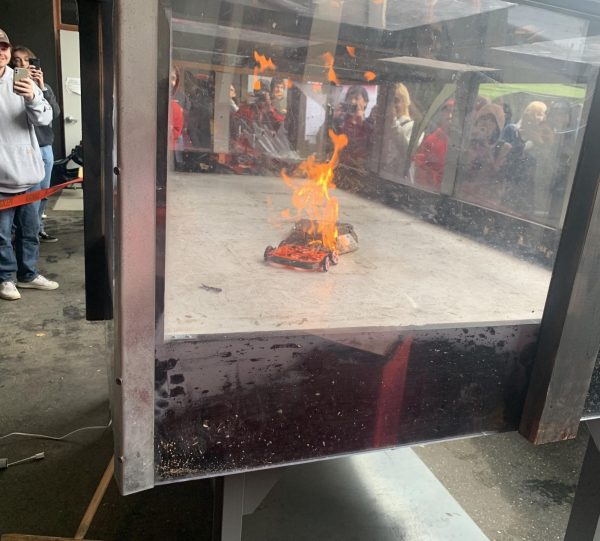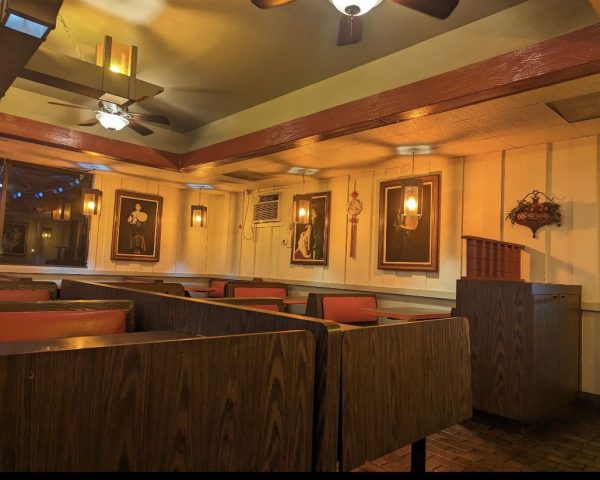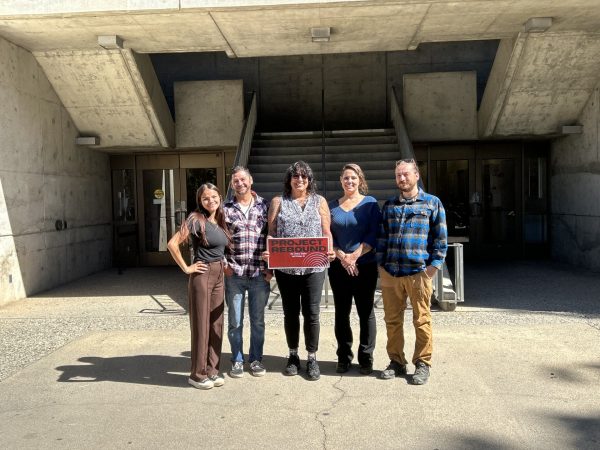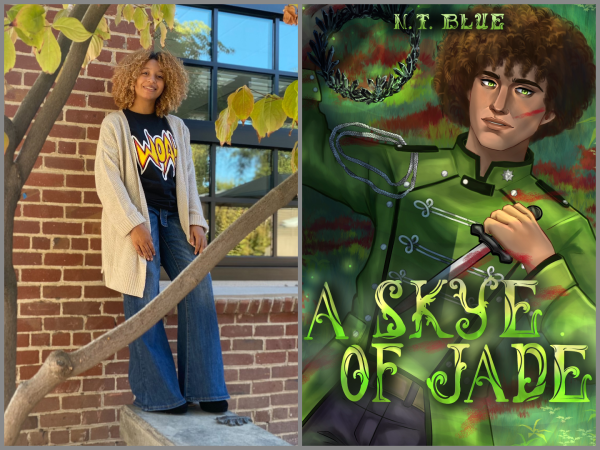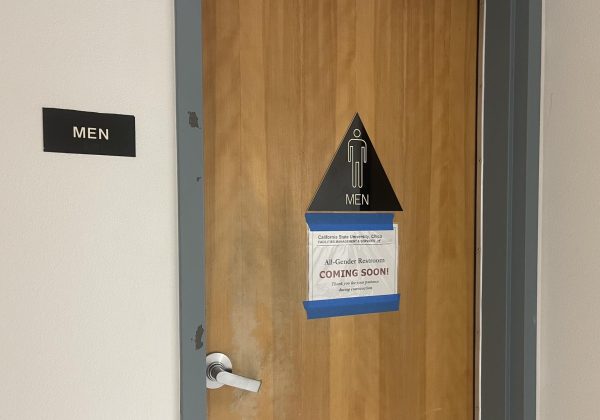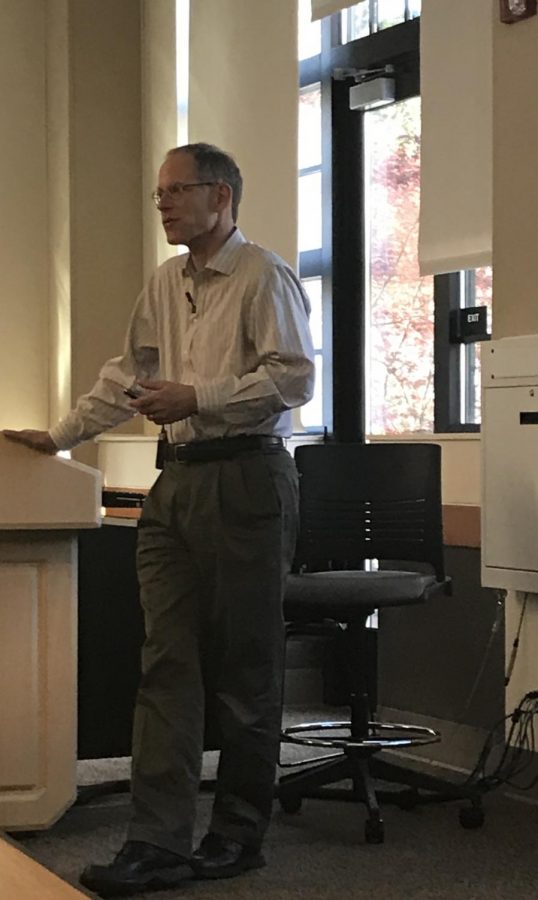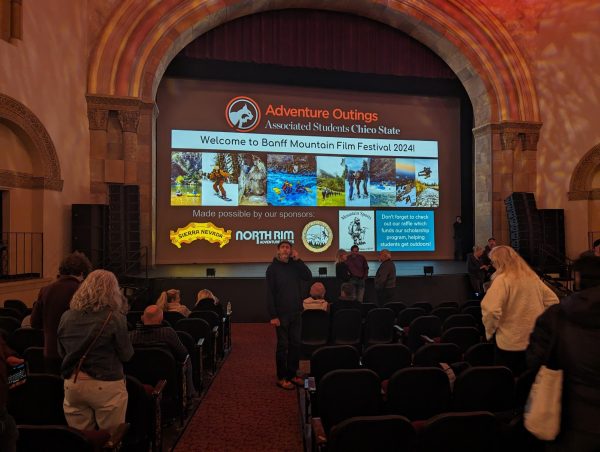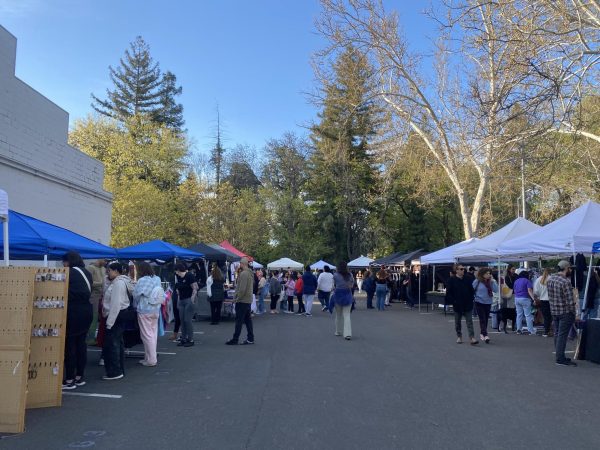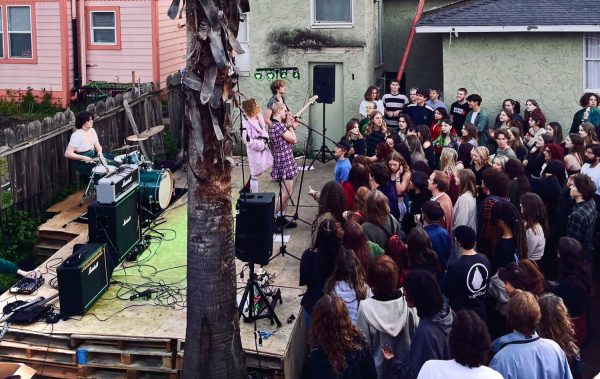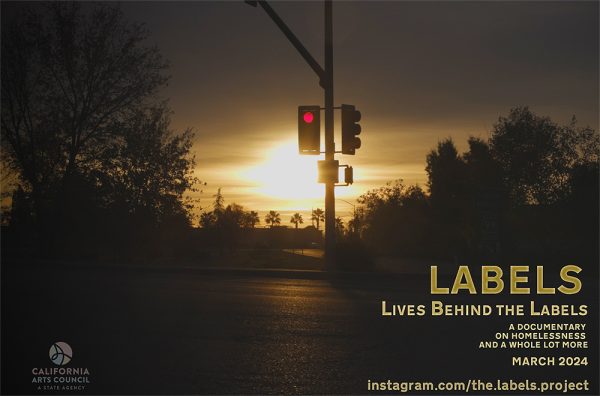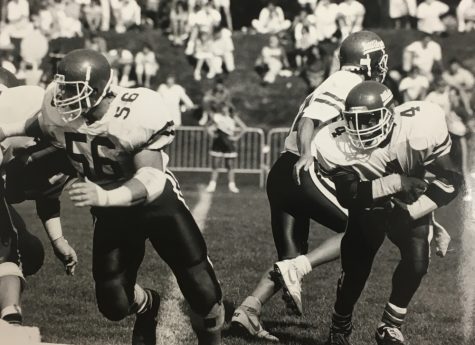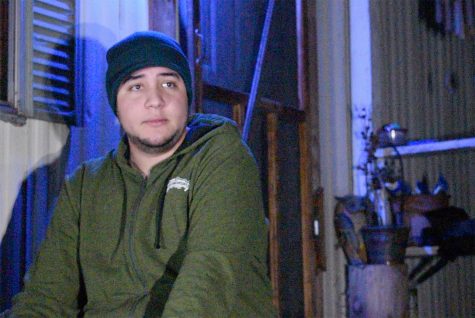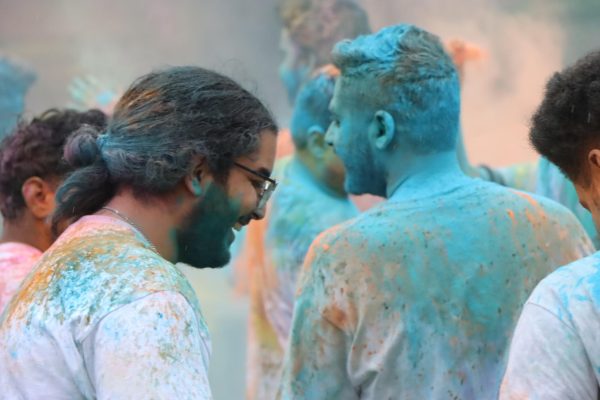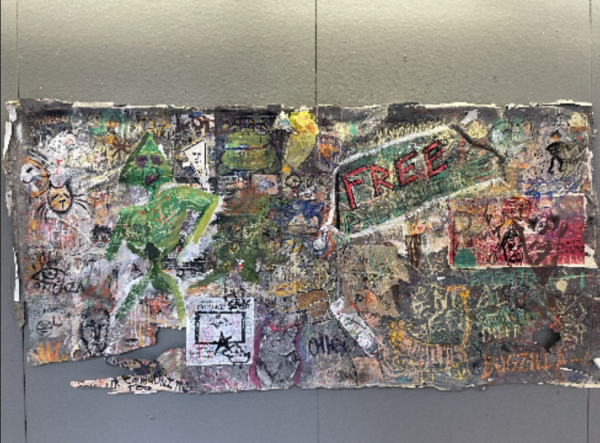Chico State welcomes Pulitzer Prize winner and author George Anders
George Anders speaking answering questions from the audience of students and faculty gathered to learn more about the job market. Photo credit: Hannah Yeager
Chico State welcomed George Anders, an author and journalist who kicked off entrepreneurship month on March 28 with a lecture on the “future of work and how to leverage your education and degree to ‘do anything,’” according to the Chico State calendar on the school website.
In Colusa Hall, the room was filled with over 10 people standing in the back because all of the seats were taken. There were pizza and cookies available, and the event continued for almost 45 minutes after the cutoff time.
The extra time was filled with conversations on topics such as artificial intelligence, the comparison of the American dollar to that of the Chinese currency and the effect that has on the economy and job market.
As an American business journalist and the author of four books, Anders has worked as an editor and staff writer at The Wall Street Journal, where he was part of a team that won a Pulitzer Prize for national reporting, Fast Company magazine and Bloomberg View, where he was a founding editor.
He is currently a Linkedin editor at large and a frequent public speaker traveling to college campuses and the like, where he talks about his work and how you can “do anything for your community,” according to his website.
His most recent book “You Can Do Anything” is what was referenced the most during his lecture, and based his “Works Provocative Future” talk on.
“This is a system that you can work to your advantage,” Anders said. “When you think about your skills think about how these elements speak to who you are.”
His examples of leveraging skills and experiences during the job search that takes place in the “after college window,” ranged from his past experience, referencing his book, to hypothetical real-life scenarios that placed the students in that job interview position.
“Critical thinking…These are very similar (skills) to what you learn in college classes,” Anders said. “The whole point of a class is to learn something new…that is really good in business. Only one-third of the population take classes outside of their comfort zone.”
Some of the skills that he emphasized as important above all else, major and basic skill set included, are problem-solving, analyzing things, trying new things and reading the room.
When explaining the typical path of those between 20 to 28 years old, the typical age of someone on their way out or recent college graduate, Anders said that “there is no reason to feel hesitant to try out a new line of work.”
He promoted the idea that there is always something new out there to try and that is what your early years are for. The typical American switches jobs four to six times within that short eight-year window and learns and discovers something new about how life works in the process.
Coming to Chico State, many students have one goal in mind: To be successful. Many students had to ask questions about the topic and most of them revolved around being viewed as valuable when being interviewed by employers.
“Be able to persuade and inspire people. Only about 30 to 45 percent of people are engaged with their jobs…if you know how to connect with those people who are tuned out, that is what is valuable,” Anders said.
Hannah Yeager can be reached at [email protected] or @theorion_arts on Twitter.
